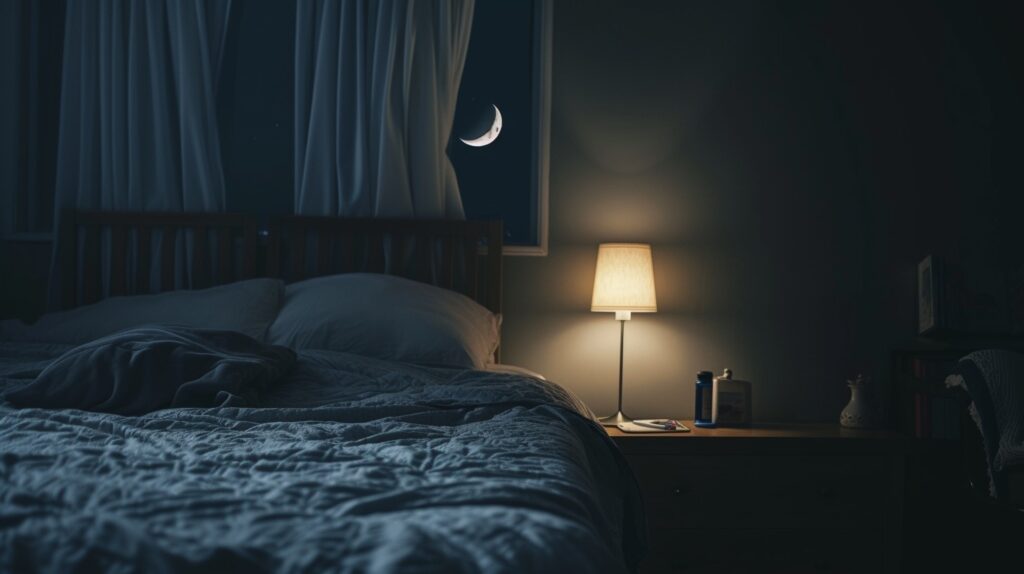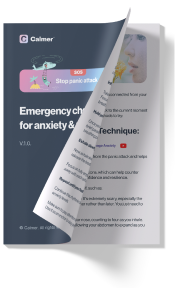I’ve noticed that when it comes to managing anxiety, people often seek alternative treatments beyond traditional medication and therapy. It’s understandable since anxiety can be overwhelming, and finding approaches that resonate with individual needs is crucial. The hormone melatonin, commonly recognized for its role in regulating sleep cycles, has been under investigation for its potential anxiolytic—that is, anxiety-reducing—effects.

While I am familiar with melatonin’s primary function as a regulator of the sleep-wake cycle, it intrigues me that its influence might extend to moderating anxiety. Given that a good night’s sleep can be elusive for those suffering from anxiety, it stands to reason that improving sleep quality with melatonin could, in turn, alleviate some anxiety symptoms. Research on melatonin as an anxiolytic has produced mixed results, which leads me to consider the complexities of anxiety disorders and how they interact with sleep-related processes. The efficacy of melatonin in reducing anxiety is not a settled matter, and its use as a supplement for this purpose comes with various considerations.
Key Takeaways
- Melatonin is commonly used to regulate sleep, with potential effects on anxiety.
- Research provides mixed evidence on its efficacy for anxiety reduction.
- Supplements like melatonin should be considered with an eye to individual responses and scientific guidance.
Melatonin and Its Role in the Body

In managing our internal clock and modulating our mood, melatonin emerges as a critical substance produced within the body. It influences not only when we succumb to sleep but also the quality of our mental health.
A growing body of research, including studies published in reputable journals such as the Journal of Psychiatry and Neuroscience, suggests that melatonin may have anxiolytic properties. However, the evidence is mixed, emphasizing the need for personalized healthcare guidance.
Melatonin Production and Circadian Rhythm
It is understood that the body synthesizes melatonin predominantly at night. Darkness causes the process to start and signals the beginning of sleep-wake cycles. This hormone’s production peaks during the late evening, fostering sleep, and diminishes with the arrival of light.
Melatonin as a Hormone
As a hormone, melatonin modulates various biological functions beyond sleep regulation. Synthesized in the pineal gland from serotonin, itself derived from the amino acid tryptophan, melatonin communicates with receptors in the body to prepare for night and sleep.
Age-Related Changes in Melatonin Levels
I observe that melatonin levels alter with age. Children have the highest levels, which diminish during aging, potentially disrupting sleep patterns in adults. This reduction may contribute to the challenges older individuals face with insomnia or early sleep-phase syndrome.
Melatonin in Mental Health
Exploring the role of melatonin in mental health, I find that it interacts with systems governing mood and anxiety, such as GABA. Imbalances may be implicated in conditions like generalized anxiety disorder, depression, and social anxiety.
Melatonin and Sleep Disorders
I’ve noted that melatonin can play a role in managing various sleep disorders. From insomnia to jet lag and shift work, it’s evident that this hormone aids in normalizing sleep-wake phases when they’re disrupted.
National Center for Complementary and Integrative Health advises on safe melatonin use, emphasizing its benefits in sleep regulation, which can indirectly alleviate anxiety symptoms. For personalized advice, consulting with healthcare professionals is crucial to ensure melatonin’s integration into anxiety management aligns with current scientific understanding and patient-specific health needs.

Anxiety and Its Effects
In dissecting the relationship between anxiety and its manifestations, I focus on the mental and physiological responses, particularly how they tie into sleep disturbances and broader mental health concerns.
Understanding Anxiety
Anxiety manifests not simply as an emotion but as a complex condition with the ability to influence overall mood and mental well-being. When I scrutinize anxiety, I perceive it as the body’s natural reaction to stress, signaling potential threats. However, in cases such as generalized anxiety disorder, this reaction occurs in the absence of actual stressors, often resulting in persistent worry or fear that interferes with daily activities.
Anxiety Disorders and Sleep
Considering sleep, anxiety plays a significant role in disrupting circadian rhythms, leading to conditions like insomnia. Sleep, which serves as a critical restorative process for the brain, becomes elusive as the mind remains in an alert state due to anxiety. This lack of rest can precipitate a vicious cycle, exacerbating anxiety symptoms and making calm and renewal during sleep difficult to obtain.
Physical Symptoms of Anxiety
On the physical plane, symptoms of anxiety are not mere discomforts; they encompass a range of experiences, from the rapid, pounding sensations of a heart caught in the throes of panic attacks to the dizziness and nausea that often cloud judgment.
Prolonged exposure to stress-related hormones may even necessitate interventions like blood pressure medication or, in extreme cases, interventions for acute coronary syndrome. Thus, mental health and physical health are not separate; one acutely impacts the other.
“The long-term activation of the stress response system and too much exposure to cortisol and other stress hormones can disrupt almost all the body’s processes. This puts you at higher risk of many health problems.”
Mayo Clinic, 2023
Melatonin as a Supplement
In my role, I frequently encounter questions about melatonin supplements as a response to anxiety. These come over the counter, and healthcare professionals often weigh in on their safety and efficacy.
Types of Melatonin Supplements
I find melatonin supplements in various forms, including pills, liquids, and chewables. Depending on your preference for intake, you can choose the type that suits you best.
Dosage and Administration
I adhere strictly to dosage guidelines when discussing melatonin administration. Typically, doses range from 0.5 mg to 10 mg, taken before bedtime. However, one should consult a doctor to determine an appropriate dose.
Potential Side Effects
Upon consumption, some individuals may experience side effects like dizziness, headaches, or nausea. Daytime sleepiness, fatigue, and irritability also arise occasionally. These terms refer to feeling unexpectedly tired during the day, enduring low energy levels, and experiencing a shorter temper.
Interactions with Other Medications
I always advise checking for interactions between melatonin and other medications. For instance, melatonin can affect how blood thinners, anticoagulants, anticonvulsants, medications for diabetes, and immunosuppressants work in the body. Consulting with a healthcare professional before combining melatonin with other treatments is crucial.

Clinical Evidence and Research
In my examination of the available data, I’ve found an assortment of studies that elucidate the role melatonin may play in anxiety management. The research, often conducted as clinical trials, offers varying levels of evidence on effectiveness and application in both preoperative and postoperative contexts, as well as in managing specific anxiety disorders.
Studies on Melatonin and Anxiety
Researchers have conducted multiple investigations to discern the impact of melatonin on symptoms of anxiety. A review from experimental and clinical studies indicates that repeated administration of melatonin may improve sleep quality, which might contribute to reduced anxiety. These findings emerge from examinations whereby participants, some receiving melatonin and others a placebo, report their anxiety levels.
Melatonin and Preoperative Anxiety
Preoperative anxiety, the distress patients often experience before undergoing surgery or medical procedure, has been the focus of certain studies. Clinical evidence suggests that melatonin might lower preoperative anxiety when compared to a placebo. This means that prior to a surgical procedure, melatonin could potentially be utilized to alleviate apprehension.
Melatonin and Postoperative Anxiety
Following a surgery, it’s not uncommon for patients to experience heightened levels of anxiety, referred to as postoperative anxiety. Research indicates that the administration of high-dose melatonin might be safe, with some studies suggesting beneficial effects on alleviating this anxiety. Whether these improvements are a direct consequence of melatonin’s properties necessitates further exploration.
Melatonin’s Impact on Specific Anxiety Disorders
When it comes to particular anxiety disorders, such as generalized anxiety, social anxiety, and panic attacks, the evidence remains more scattered. However, the melatonergic system, fundamental to the regulation of melatonin in the body, appears to intersect with pathways moderating mood and anxiety. This implies that melatonin might exert direct actions on mechanisms underlying these disorders, although clinical validation of this role continues to require more rigorous trials.
Melatonin for Anxiety: Usage and Considerations
In the quest to manage anxiety, melatonin emerges as a potential aid, bearing the prospect of enhancing treatment plans that include therapy and lifestyle adjustments.
When to Consult a Doctor
I recognize the importance of professional guidance when symptoms of anxiety disrupt daily life. Before I initiate melatonin or any new supplement, I find it imperative to consult with a doctor. Together, we assess my symptoms, explore potential interactions with current medications, and decide whether melatonin might integrate well into my existing treatment plan, which may include therapy or antidepressants.
Alternative Treatments for Anxiety
Aside from melatonin, a range of treatments exist to contend with the challenges anxiety presents. Alternative remedies often operate alongside conventional methods, such as therapy. Among these alternatives, certain herbal substances like lavender and chamomile show promise in providing anti-anxiety effects. Moreover, in some cases, healthcare professionals might prescribe antidepressants to alleviate symptoms.
Lifestyle and Behavioral Changes
A confluence of lifestyle alterations and behavioral strategies proves influential in managing stress and anxiety symptoms. Regular exercise stands out, functioning to reduce stress levels through the release of endorphins. Modifications in diet, incorporating foods known to support mood, also demonstrate utility in this context. Additionally, I recognize the value of consistent sleep patterns and relaxation techniques in formulating a robust response to anxiety.
Mindful integration of these elements into daily regimen often acts synergistically with other treatments, reinforcing the objective of a balanced, anxiety-resilient lifestyle.
Conclusions and Recommendations
My examination centers on the impact of melatonin on anxiety, and the forthcoming discussion underscores pivotal insights.
Summary of Melatonin’s Role in Anxiety
Melatonin serves as a supplement that some individuals use to manage their anxious feelings. This hormone, which the brain secretes naturally, aligns closely with the body’s sleep-wake cycle; its levels rise at night to facilitate sleep. That said, I observe in my analysis of recent studies an emerging trend where melatonin appears to play a part in anxiety management. For instance, research highlighted by the French Institute of Medical Research on Sleep (SFRMS) suggests that melatonin can be used as a secondary treatment, enhancing the approach to anxiety management.
Additionally, studies like the one the MELODY project describes suggest that melatonin may aid breast cancer patients with their cognitive symptoms and sleep issues. This suggests that melatonin could be useful in other situations where anxiety is linked to other health problems. Experts also acknowledge the possibility of using melatonin for preoperative and postoperative anxiety, which points to its versatility beyond everyday stress.
Given these points, my recommendation is for individuals to consult their doctors when considering melatonin for anxiety, as medical professionals can offer tailored advice that aligns with established guidelines. The interplay between melatonin and mental health, especially concerning sleep disturbances, necessitates such personalized guidance. Generally, the incorporation of melatonin into one’s routine must proceed with medical oversight, ensuring congruence with the individual’s health status and any concurrent treatments.
In essence, responsible melatonin use, backed by professional advice and relevant clinical evidence, may contribute to a more integrative approach to managing anxiety and sleep-related difficulties.
Additional Resources
In my exploration of melatonin and its impact on anxiety, I have come to realize the importance of comprehensive support systems. These can significantly enhance the way individuals manage their mental health concerns. Below, I’ve detailed some valuable tools and assets that people might find useful.
Support and Advocacy Groups
I often suggest that joining support and advocacy groups can prove beneficial. These groups provide a sense of community and shared experience that lets individuals know they’re not alone. Groups such as the Anxiety and Depression Association of America offer a multitude of resources, including educational materials, peer support, and guidance on effective management strategies for those dealing with anxiety disorders.
Online Information and Forums
I’ve noticed that sifting through online information and forums can equip individuals with a diverse range of insights and personal stories. It’s crucial to engage with reputable sites to ensure the accuracy of information. For example, Psych Central hosts a wealth of articles on mental health, while forums such as the Anxiety Community Forum create spaces for individuals to exchange their experiences and coping strategies.
Contacting Healthcare Professionals
I cannot stress enough the significance of consulting healthcare professionals when concerns about mental health arise. Initiating a dialogue with a doctor or mental health specialist not only helps in formulating a treatment plan but also clarifies doubts and provides tailor-made guidance. It is crucial to maintain direct and ongoing communication with a healthcare professional who can monitor progress and make adjustments to the treatment approach as needed.
Frequently Asked Questions
Exploring the impact of melatonin on anxiety, I’ve gathered some of the most common inquiries that arise when considering this natural supplement’s role in anxiety management. Let’s delve into these questions and provide insights founded on current knowledge.
What are the benefits of melatonin for managing panic attacks?
I find that melatonin regulates the sleep-wake cycle, potentially reducing the occurrence of nighttime panic attacks by improving sleep quality. When panic attack sufferers follow a regular sleep schedule with the help of melatonin, they might notice a decrease in their frequency.
Is melatonin an effective treatment for daytime anxiety?
Although primarily known for its sleep benefits, some studies suggest that melatonin may also help with daytime anxiety. For instance, I’ve observed that melatonin can set off changes in physiological responses to stress.
What is the recommended dosage of melatonin to alleviate anxiety symptoms?
The appropriate melatonin dosage can vary, but I generally note that starting with low doses, such as 0.5 to 3 mg taken shortly before bedtime, may help improve anxiety symptoms related to sleep disruptions.
Can administering melatonin to dogs reduce their anxiety levels?
Interestingly, melatonin is sometimes used in veterinary medicine to address anxiety in dogs. I’ve seen it particularly helps with noise phobias and may lead to a more relaxed state in these animals.
How long does it typically take for melatonin to influence anxiety symptoms after ingestion?
The onset of melatonin’s effects tends to be relatively quick. I notice that individuals might start to feel its calming effects within 30 minutes to an hour after ingestion.
Does melatonin usage promote a sense of calmness in individuals dealing with stress?
It is indicated that melatonin could trigger the body’s relaxation responses. Thereby, I’ve observed that individuals under stress might experience a heightened sense of calmness after taking melatonin, particularly if stress interferes with their sleep.




